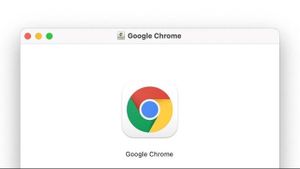JAKARTA - On Thursday, August 17, a United States (US) federal judge rejected a lawsuit accusing YouTube of limiting or removing videos from black and historical content creators of their race.
US District Judge Vince Chhabria in San Francisco said that although the idea that the YouTube algorithm could discriminate racially is possible, the plaintiffs were "not close" to showing that they were experiencing any discrimination.
The class action lawsuit filed on behalf of a non-white YouTube user was originally filed in June 2020, less than a month after the murder of George Floyd by a police officer in Minneapolis sparked national attention to racial injustice.
Nine plaintiffs said YouTube, which is owned by Alphabet Inc., parent of Google, imposed more restrictions on their videos than similar videos of white contributors, violating contractual obligations under its service requirements to provide racially neutral content moderation.
However, the judge said that YouTube simply promised that its algorithm would not treat people differently based on their identity, not that the algorithm was immovable.
The judge also said the plaintiffs relied on video samples that were too small, and some actually harmed their cases.
SEE ALSO:
For example, he said YouTube's restrictions on the "tutorial makeup" of one of the plaintiffs on how to make Donald Trump's "typical look" could reflect the plaintiff calling the Ku Klux Klan and describing a brighter makeup color as white supremacist color.
"The plaintiff definitely looks like a joke, a possibility in an attempt to ridicule white supremacists, but this can easily explain the different treatment by the algorithm," Chhabria wrote.
Chhabria also said some of these demands occurred before the latest update on the YouTube community's guidance, and that YouTube "cannot be considered responsible for violating promises they haven't made."
The plaintiffs' lawyers did not immediately respond to a request for comment from Reuters. YouTube and its lawyers also did not immediately respond to a similar request.
Chhabria rejected the case with prejudice, meaning the case could not be re-submitted, after the complaint had been amended five ka
The English, Chinese, Japanese, Arabic, and French versions are automatically generated by the AI. So there may still be inaccuracies in translating, please always see Indonesian as our main language. (system supported by DigitalSiber.id)














